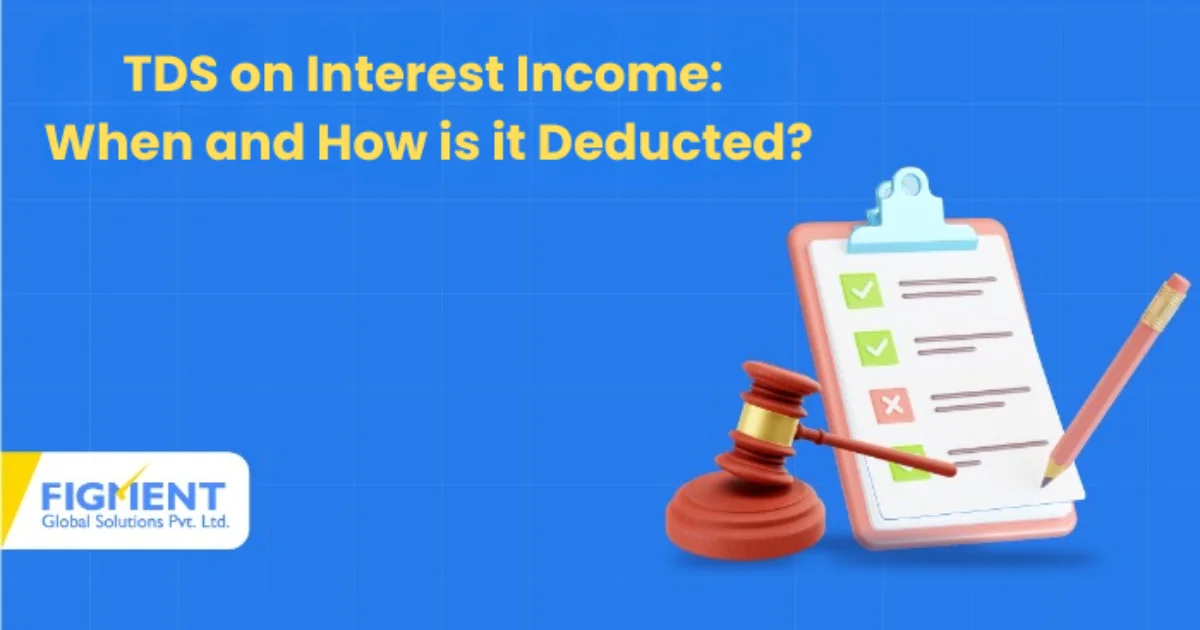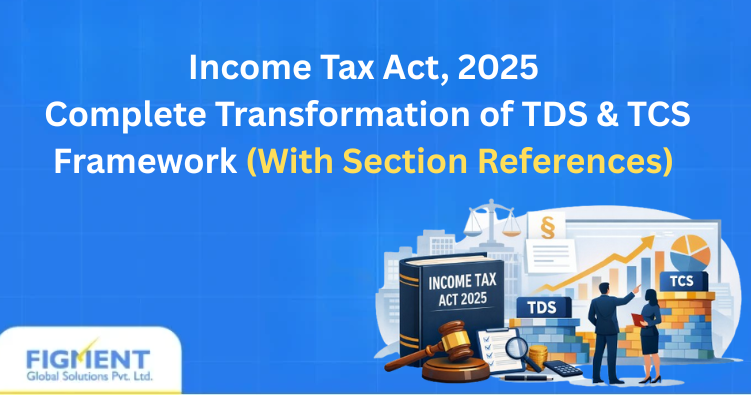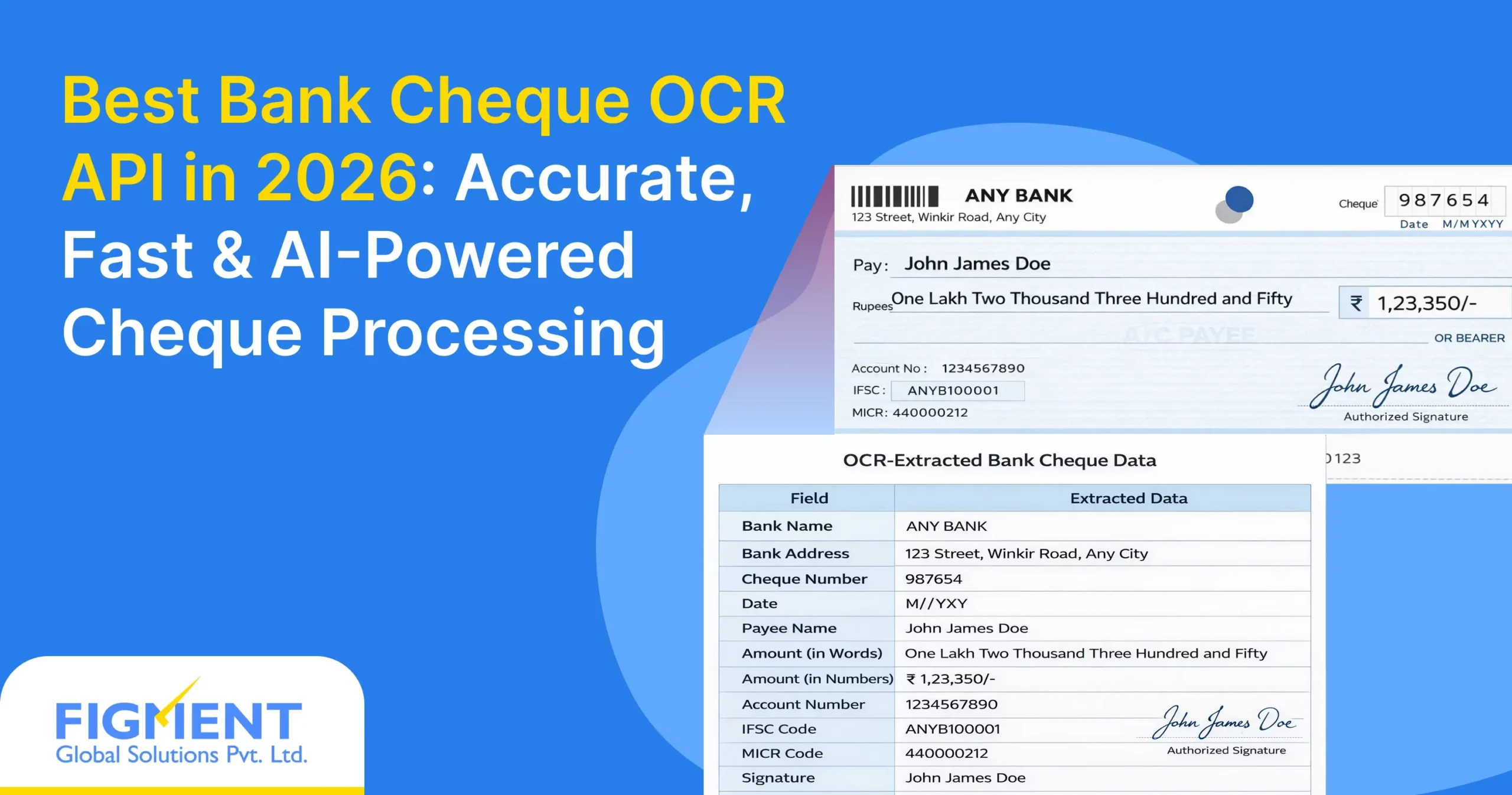When managing your finances, understanding how taxes apply to your earnings is crucial. One area that often raises questions is TDS (Tax Deducted at Source) on interest income. Whether it’s interest earned from a fixed deposit, savings account, or bonds, TDS rules can impact your final take-home income. Let’s break down what TDS on interest income is, when it’s deducted, and how it works.
What is TDS on Interest Income?
TDS (Tax Deducted at Source) is a mechanism introduced by the Income Tax Department of India to collect tax at the source from where income is generated.
In the case of interest income, banks or financial institutions deduct a certain percentage of tax before crediting the interest to your account. This ensures timely tax collection and reduces the chance of tax evasion.
When is TDS Deducted on Interest Income?
TDS is applicable under the following conditions:
- Fixed Deposits (FDs) and Recurring Deposits (RDs): TDS Section 194A
- TDS is deducted if interest exceeds ₹50,000 for a normal deductee in a financial year and ₹1,00,000 for senior citizens from F.Y. 2025-26.
- Savings Bank Interest:
- No TDS is deducted on savings account interest.
- However, interest earned is still taxable, and you must declare it in your Income Tax Return (ITR).
- Company Deposits or Bonds: TDS Section 193
- TDS is deducted if the interest exceeds ₹10,000 in a financial year.
How Much TDS is Deducted?
- 10% TDS is deducted if your PAN-Aadhar is linked to the account.
- 20% TDS is deducted if PAN is not provided.
- No surcharge or cess is added to this deduction.
TDS on Interest Income for NRIs
If you’re an NRI (Non-Resident Indian), the rules for TDS on interest income are different and stricter compared to residents.
NRO Account
- Interest is fully taxable in India.
- TDS is deducted at 30% + cess (effective ~31.2%).
- No basic exemption applies (like ₹40,000 for residents).
- Form 15G/15H not allowed.
- Must file ITR in India to claim refund if eligible.
NRE & FCNR Accounts
- Interest is tax-free if:
- You’re compliant with FEMA rules.
- Deposit is in INR (NRE) or foreign currency (FCNR).
- No TDS is deducted.
DTAA Benefits
- NRIs can get lower TDS rates (as low as 10%) by:
- Submitting a Tax Residency Certificate (TRC).
- Filing Form 10F with the bank.
Quick Recap
| Account Type | TDS Rate | Taxable? | Form 15G/15H Allowed? |
| NRO | ~31.2% | ✅ Yes | ❌ No |
| NRE | Nil | ❌ No | ❌ Not Needed |
| FCNR | Nil | ❌ No | ❌ Not Needed |
Tip: To reduce tax outgo, maintain funds in NRE/FCNR accounts and use DTAA if eligible. Always file ITR to claim excess TDS refunds.
How Can You Avoid TDS?
You can avoid TDS deduction if your total income is below the taxable limit. Here’s how:
1.Submit Form 15G / 15H:
- Form 15G: For individuals below 60 years with income below the taxable limit.
- Form 15H: For senior citizens (60+) whose tax liability is nil.
- These forms must be submitted at the beginning of the financial year to the bank or institution.
How to Check TDS on Interest Income?
You can check the details of the TDS deducted:
- Through your Form 26AS or the Annual Information Statement (AIS) on the Income Tax portal.
- This shows the TDS deducted by all deductors (banks, companies, etc.) and helps ensure accurate ITR filing.
What if TDS is Deducted Excessively or Wrongly?
Sometimes, despite being eligible for exemption, TDS may be deducted due to:
- Not submitting Form 15G/15H
- PAN not being linked to your account
- Multiple deposits across banks leading to miscalculation
In such cases, you can claim a refund while filing your ITR. The refund will be processed by the Income Tax Department after assessing your return.
Key Takeaways
| Point | Details |
| Threshold for FDs | ₹50,000 (₹1,00,000 for seniors) |
| TDS Rate | 10% with PAN, 20% without PAN |
| TDS Avoidance | Submit Form 15G/15H |
| Taxability | Interest is always taxable, even if TDS isn’t deducted |
| Refund | Possible via ITR if income is below taxable limit |
Summary Table: TDS on Interest Income
| Source of Interest | Threshold for TDS | TDS Rate (with PAN) | TDS Rate (without PAN) | Can Submit 15G/15H |
| Fixed Deposits (FDs) | ₹50,000 (₹1,00,000 for seniors) | 10% | 20% | Yes |
| Recurring Deposits | ₹50,000 (₹1,00,000 for seniors) | 10% | 20% | Yes |
| Savings Account | No TDS | Nil | Nil | Not Required |
| Corporate Bonds | ₹10,000 | 10% | 20% | Yes |
| Tax-Free Bonds | Exempt | Nil | Nil | Not Applicable |
Conclusion
TDS is a useful tool for tax compliance, but it shouldn’t lead to excess deductions or delays in refunds. By understanding when and how TDS applies to your interest income and taking proactive steps like submitting Form 15G/15H or tracking Form 26AS, you can optimize your tax outgo and avoid surprises at year-end.
Being aware of TDS rules is not just about saving tax—it’s about being in control of your finances.







